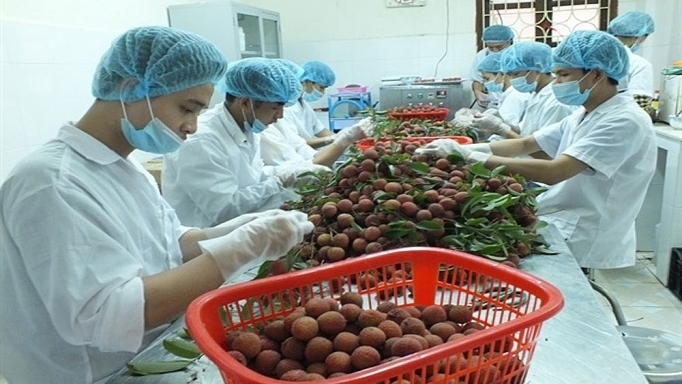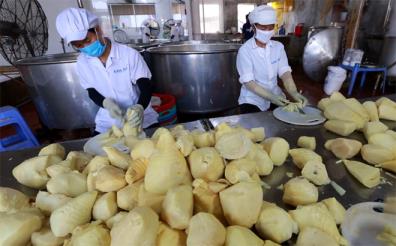Japan has officially opened the door for Vietnamese lychee to directly enter this market in the 2020 crop, according to the Ministry of Agriculture and Rural Development (MARD). The Ministry of Agriculture, Forestry and Fisheries of Japan (MAFF) informed the MARD’s Plant Protection Department of its opening market for Vietnamese “thieu” lychee associated with regulations on plant quarantine in late December 2019.

|
|
Lychee is the fourth fresh fruit of Vietnam, after dragon fruit, mango, and banana allowed to be imported into the Japanese market.
|
Thus, lychee is the fourth fresh fruit of Vietnam, after dragon fruit, mango, and banana allowed to be imported into the Japanese market - one of the world’s most demanding markets in regards to quality standards and food hygiene and safety.
This is a great opportunity to stabilise the production and consumption of lychee while reducing the oversupply during peak harvesting times. In particular, this opportunity is more important in the complicated development of the Covid-19 epidemic that has cause heavy impacts on many types of Vietnamese agricultural products that are currently not being exported to China and some other markets.
However, many stricter requirements are set for our country's lychee growing areas, especially for main lychee hubs such as Hai Duong and Bac Giang, to change their production methods to properly and fully meet the most stringent standards of the Japanese market.
The Plant Protection Department has issued documents guiding localities to proactively and quickly implement requests from partners, particularly accelerating the process of granting areas codes and ensuring the traceability of farming areas.
Accordingly, the minimum registered area is 5ha per coded area and the rate of lychee trees flowering in the coded area is from 70%. In addition, the production diary of lychee gardens must be kept in a record and inspected and granted a code by the Plant Protection Department.
The lychee farming gardens must also apply control methods to deal with Bactrocera dorsalis and absolutely not use plant protection drugs on the banned list.
Furthermore, the package and fumigate of lychee fruits must comply with the regulations on plant quarantine of the MAFF.
Thus, Vietnamese localities with large lychee farming areas should have plans to connect enterprises with planting areas and managing plant quarantine before exporting while monitoring the planting areas and the implementation of other necessary conditions.
In addition, authorised agencies must make efforts to facilitate the implementation of administrative procedures regarding the export of the fruit while farmers should raise their awareness in production and exporters raise their accountability in export activities.
Farmers should strictly abide by importers’ regulations on the production process and exporters must ensure the buying of products meeting all the set requirements to ensure the long-term reputation of Vietnamese lychee as well as other agricultural products that are under negotiation to be exported to other countries.
The penetration into such a fastidious market will be a driving force for Vietnamese agricultural products to escape dependence on established markets and gain confidence to compete at a global level.
NDO

In 2025, Yen Bai will continue to preserve, maintain, and develop 13 craft villages and 2 traditional crafts recognized by the People's Committee of Yen Bai province, focusing on 4 industry groups.

Yen Bai has been implementing various solutions to build a sustainable agricultural sector that adapts to climate change.

With a proactive and comprehensive approach, Van Chan district is committed to effectively implementing the National Target Programs (NTPs) and socio-economic development projects.

In 2025, Yen Bai aims to recognize four new craft villages, including one in the city, one in Tran Yen, one in Van Chan, and one in Van Yen.








